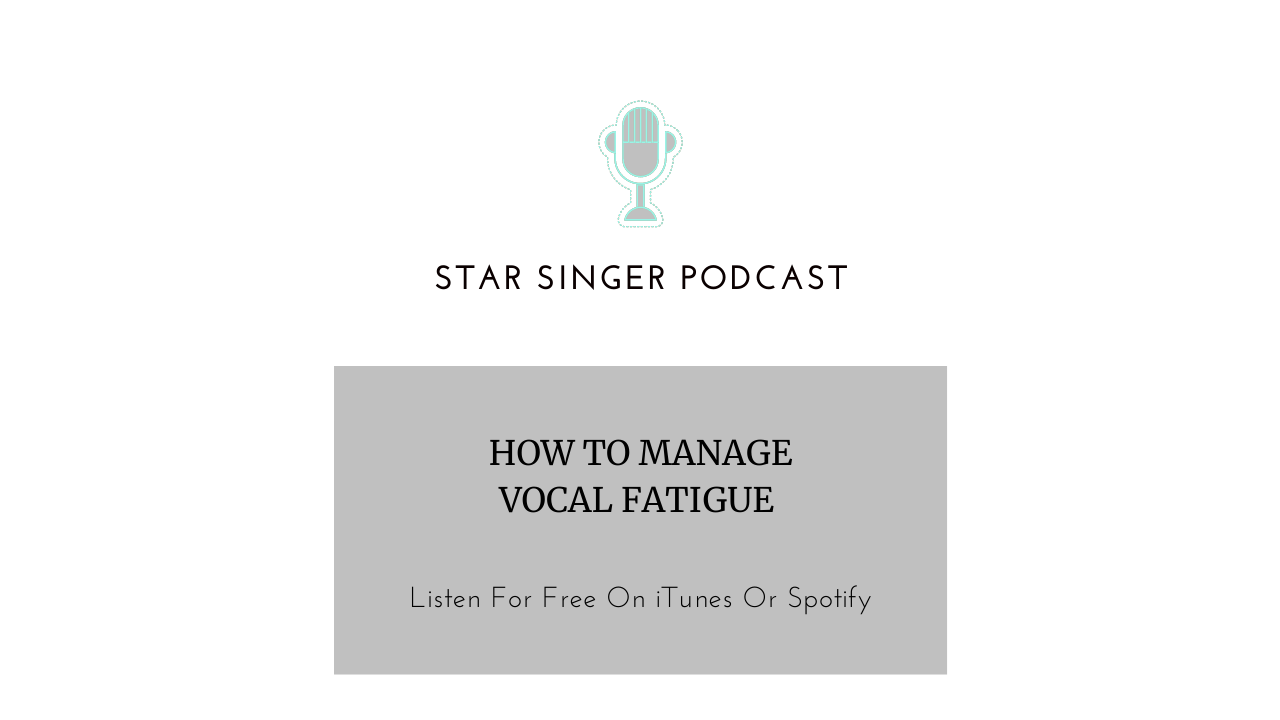How To Manage Vocal Fatigue
Apr 15, 2021

I get a ton of questions over vocal fatigue or wanting to improve your vocal stamina. I get it! You want to control your voice and keep it healthy. I'm going to show you how you can sound amazing AND manage vocal fatigue.
You'll discover:
-
What is vocal fatigue and what are some signs of vocal fatigue?
-
The magic ratio of glottal resistance vs airflow
-
The recommended vocal exercises for airflow
-
How to solve problems within the context of your songs through vocal exercises.
-
Solutions for airflow and pitch problems
How To Manage Vocal Fatigue - What is Vocal Fatigue?
Vocal fatigue could be when you hear a raspiness or breathiness when you sing or you feel a loss of access to some notes. One of the very first signs of vocal fatigue is when you lose access to a range of notes - if this happens to you, stop singing immediately!
Being aware of how your voice sounds and feels is so important because it is so easy to push it too far. In a perfect world, you should be able to sing an hour long live show with absolutely no problems. If you are doing a live show and begin to feel vocal fatigue within that hour, there is something within your vocal technique that can be improved.
When you sing, you have glottal resistance. If the glottis doesn’t have resistance, it has a pocket of air in it which is what causes breathiness or causes your voice to lack power so you want your airflow and glottal resistance to be equal.
Most singers, when they feel that raspiness or breathiness in their voice, start to push harder, which increases the pressure and their airflow. If there is too much pressure on your vocal folds over time it can cause inflammation, nodules, and a whole host of other issues.
So how do you fix this? You need to get your airflow and glottal resistance at a 1:1 ratio, and 9 out of 10 times this can be achieved by focusing on airflow and breath first.
How To Manage Vocal Fatigue - The Importance of Lip Buzzes
If you have a song with a really high note, always think about the airflow and test it by doing lip buzzes.
Can you lip buzz those high notes, or does the sound spurt out? If you can’t even start your lip buzz, you have WAY too much pressure. If your buzz stops in the middle, then you don’t have enough pressure.
If you have a phrase that jumps up to a high note and you hear a drastic pressure in your lip buzz, that means that you are putting more pressure on the high note than the lower note - and that is not what you want to be doing.
So how do you keep the pressure consistent? You need to stay open and connected through your phrases. Not only will this help you strengthen the muscles you use for breath control, but it also helps you monitor your airflow so you can get to that 1:1 ratio.
If you want to practice with some lip buzz exercises, as well as some other exercises to help you manage vocal fatigue, check out my program, The Star Singer Green Room at starsinger.co/singnow

